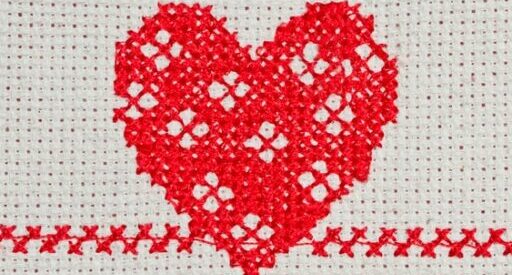Master Hand Stitching with Chanin: Expert Classes Transforming Craftsmanship
The art of hand-stitching is making a comeback, largely because of Natalie Chanin. She’s passionate about sustainable fashion and old-school techniques, and she’s sharing that passion with students who want to pick up the craft.
This effort keeps a valuable skill alive. It also invites a kind of mindfulness and creativity that’s often missing in today’s fast-paced fashion world.
Chanin’s workshops really lean into the idea of slow fashion. Every stitch matters, and every scrap of fabric gets its due respect.
She’s building a community that cares about quality over quantity. People are learning to appreciate the charm and beauty of handmade clothes.
Table of Contents
The Resurgence of Hand-Stitching
Fast fashion and mass production seem to rule the day, but suddenly, hand-stitching feels fresh again. Natalie Chanin—designer and founder of Alabama Chanin—has a lot to do with that shift.
Her workshops aren’t just about sewing. They’re about connecting with fabric, and honestly, getting a feel for the history and tradition tucked into every stitch.
It’s a totally different vibe from the cold, impersonal world of machine-made clothes. There’s something almost comforting about it.
Why Hand-Stitching Matters
Hand-stitching blends creativity with a kind of mindfulness you don’t get from machines. Each stitch demands your attention, turning the process into something meditative—almost soothing, really.
There’s also room for more personal expression. Every piece ends up unique, touched by the maker’s own hand.
Chanin’s workshops highlight all of this. Students are encouraged to slow down and make garments that actually mean something to them.
Sustainable Fashion Through Hand-Stitching
Sustainability sits right at the heart of Chanin’s approach. She teaches hand-stitching as a way to make fashion more responsible.
Handmade clothes tend to last longer and hold up better than machine-made ones. That means you don’t have to replace them so often.
Chanin’s workshops also use organic and recycled materials. It’s a small step, but every bit helps lessen the environmental hit.
The Environmental Benefits
The fashion industry creates a shocking amount of pollution and waste. Fast fashion is especially guilty here.
Hand-stitching, on the other hand, offers a way out. Chanin’s slow fashion practices mean less waste, fewer clothes in landfills, and a smaller carbon footprint overall.
Sustainable materials and a focus on quality make a real difference. It’s not a perfect solution, but honestly, it’s a move in the right direction.
Building a Community of Artisans
Chanin’s workshops go beyond basic sewing lessons. They’re about bringing together people who care about craftsmanship and sustainability.
Participants share a passion for hand-stitching and learn from each other. There’s a genuine sense of camaraderie in the room.
That community vibe is a big part of Chanin’s mission. Support and creativity seem to flourish when people gather over a shared craft.
Connecting Through Craft
Hand-stitching is surprisingly social. Whether people meet in workshops or online, the craft brings them together.
Chanin’s workshops give folks a place to swap ideas and inspire one another. That kind of collaboration feels essential if we want to keep hand-stitching alive in the modern world.
The Future of Hand-Stitching
It feels like more people are waking up to the perks of hand-stitching and sustainable fashion. There’s hope for this old craft yet.
Chanin’s teaching and advocacy are helping a new generation of artisans find their footing. With enough momentum, maybe hand-stitching will stick around for years to come.
Embracing the Slow Fashion Movement
The slow fashion movement keeps gaining traction. Hand-stitching sits right at the heart of this shift.
When people choose to make or wear handmade clothes, they’re pushing back against the throwaway mindset of fast fashion. There’s something bold about that.
Chanin’s workshops give folks the tools and confidence to dive in. You walk away with skills, sure, but also a new perspective on what you wear and why.
If you’re curious about Chanin’s workshops or just want to know more about hand-stitching, check out the original article.

